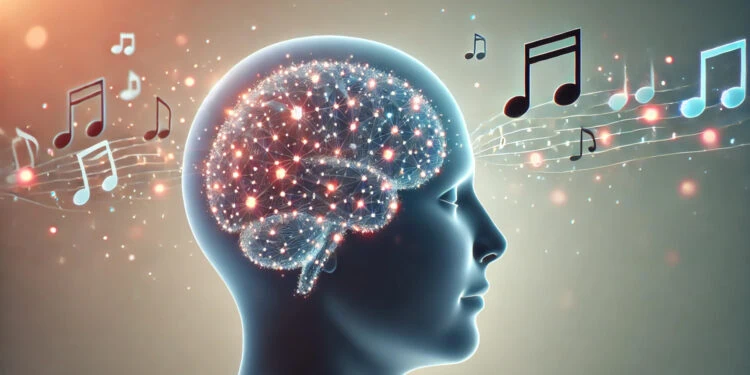Blog
“Why Learning a Musical Instrument Benefits Your Brain”
Learning to play a musical instrument is much more than just developing a skill to perform music. It’s an enriching experience that provides numerous cognitive, emotional, and social benefits. From boosting brain power to enhancing memory, learning music can have profound effects on the brain. Whether you are a child just starting to play an instrument or an adult picking up an instrument for the first time, the cognitive benefits are universal and well-documented. In this article, we’ll explore the various ways learning a musical instrument benefits your brain and cognitive abilities.
1. Improves Memory and Retention
Learning a musical instrument involves memorizing music, scales, and techniques. This constant practice of remembering notes, chords, and songs has a positive impact on both short-term and long-term memory. Studies have shown that musicians tend to have superior verbal memory and better recall compared to non-musicians.
Memory Enhancement through Repetition
When learning to play an instrument, repetition is key. Musicians must memorize not only pieces of music but also the physical movements associated with playing their instrument. This repetitive process strengthens memory retention. Additionally, the need to remember lyrics, scales, or musical patterns engages the brain in a way that makes it more adept at storing and recalling information, which can transfer to other areas of life, such as studying or problem-solving.

2. Boosts Cognitive Function and Intelligence
Playing an instrument stimulates both the left and right hemispheres of the brain, enhancing overall brain function. The left hemisphere is associated with logical thinking, language, and analytical tasks, while the right hemisphere governs creativity, visual imagery, and emotional processing. By engaging both hemispheres, musicians benefit from better coordination between the two areas, which can improve general cognitive abilities, including problem-solving, spatial reasoning, and critical thinking.
IQ Improvement
Multiple studies have shown that children who study music tend to score higher on IQ tests. This increase in IQ is largely attributed to the enhanced brain activity that comes with learning music, which activates various areas of the brain simultaneously. Research suggests that musicians often have stronger executive functions, such as decision-making, planning, and multitasking, which contribute to higher levels of intelligence.
3. Enhances Focus and Concentration
One of the key aspects of learning an instrument is the constant need for concentration and focus. Musicians must pay attention to multiple factors simultaneously, including the sheet music, their instrument, rhythm, and dynamics. This process trains the brain to improve attention span and concentration.
Multitasking Ability
Playing an instrument requires the ability to multitask effectively. For example, when playing the piano, a pianist needs to read sheet music, play with both hands, coordinate their foot with the pedals, and listen to the sound produced—all at the same time. This develops a higher level of cognitive control, enabling musicians to focus on multiple aspects of a task at once. These skills can improve focus and concentration in other areas of life, such as work, school, and daily activities.
4. Improves Coordination and Motor Skills
Playing a musical instrument involves fine motor control, which helps improve coordination between the brain and body. For instance, playing the piano requires finger independence, while playing the violin involves coordinated hand movements with bowing. These intricate hand-eye coordination tasks stimulate the motor cortex, which controls muscle movements.
Fine and Gross Motor Skills
Learning to play an instrument requires both fine and gross motor skills. Fine motor skills are involved in precise finger movements, while gross motor skills are necessary for overall body coordination (e.g., posture, hand position). By practicing an instrument regularly, musicians enhance their dexterity, hand-eye coordination, and overall motor control, which can benefit other activities like sports or even day-to-day tasks.
5. Increases Emotional and Psychological Well-being
Music has a profound effect on emotions and mental health. Learning to play an instrument can provide an emotional outlet, offering relief from stress, anxiety, and depression. It can also enhance self-esteem and boost confidence, especially when achieving milestones or mastering difficult pieces.
Stress Relief and Emotional Expression
Studies have shown that music can trigger the release of dopamine, the “feel-good” chemical in the brain. For musicians, creating music offers a therapeutic way to express emotions, which can help reduce stress and anxiety levels. Playing music can be particularly beneficial for mental well-being, as it encourages a form of emotional release that is not always possible with words.
Moreover, mastering an instrument and achieving musical goals can provide a sense of accomplishment and self-worth. This can help combat feelings of frustration or inadequacy, leading to a more positive outlook on life.
6. Fosters Creativity and Problem-Solving
Playing an instrument requires creativity, whether composing original pieces or interpreting existing music. Musicians often think outside the box to create new sounds or arrangements, enhancing their creative thinking abilities. Even when learning classical music, musicians need to interpret and add their personal touch to their performance, which requires problem-solving skills and innovative thinking.

Creative Problem-Solving
When learning a new piece, musicians are constantly solving problems—deciding on finger placements, figuring out difficult passages, or deciding how to express the emotions of a piece. This problem-solving process encourages critical thinking and develops a more flexible, creative mindset. Musicians are also more likely to approach challenges in other areas of life with creativity, adaptability, and resourcefulness.
7. Strengthens Social Skills and Collaboration
While playing an instrument often involves individual practice, many musicians also perform in groups or orchestras, which helps develop social skills such as communication, collaboration, and teamwork. Working with others in a musical setting requires a high level of cooperation and listening, as each musician contributes to the overall sound.
Working with Others
Whether playing in a band, an orchestra, or a choir, learning an instrument fosters a sense of community and camaraderie. Musicians learn to listen to each other, stay in sync, and adjust their playing to fit the overall performance. This not only enhances social skills but also encourages emotional intelligence, as musicians must understand and respond to the emotions and actions of others.
8. Helps with Language Development
Interestingly, learning music has been linked to language development. The skills required to process music—such as recognizing pitch, rhythm, and patterns—are also essential for learning language. Musicians, particularly those who play instruments that require reading sheet music, tend to develop stronger language skills, including better vocabulary, reading comprehension, and speech recognition.
Language Acquisition and Music
Research has shown that musical training can help improve phonological awareness, which is the ability to recognize and manipulate sounds in spoken language. This benefit is especially noticeable in children, as musical training can lead to better speech and reading skills. For instance, children who play instruments tend to excel in early literacy and language acquisition.
Conclusion
Learning a musical instrument is a powerful tool for brain development. From improving memory and cognitive function to enhancing emotional well-being and social skills, the benefits of learning music extend far beyond simply playing an instrument. Whether you’re a child, teenager, or adult, picking up an instrument can lead to lifelong improvements in brain health, creativity, and overall quality of life. The cognitive and emotional advantages are evident, making musical training not only enjoyable but also an investment in your brain’s future.
So, if you’ve ever considered learning an instrument, there’s no better time than now. Not only will it improve your musical abilities, but it will also help your brain grow and thrive in ways you never imagined.


